
Katherine's UK-Japan Scientist Trip

Hello everyone!
My name is Katherine, I am 16 years old and I have been invited by the Clifton Scientific Trust to participate in the very first All-Girl UK-Japan Young Scientist Workshop taking place at Nagoya University in Summer 2016.
This invite is a dream come true, and it will be a truly amazing life experience for me!
What am I raising money for?
The trip itself is taking place from 28th July to 8th August 2016 and the educational side of the programme is subsidised by Clifton Scientific Trust.
This experience it is not free but is being offered at £1,500 - which is the actual cost of flights plus accommodation.
My mother will be putting aside some money to pay for my passport and visa expenses, plus I currently have £300 in personal savings that I can put towards this trip.
Of my £300 savings I will have to take approximately £100 with me as general spending money that I’ll need whilst I’m out there.
So my challenge is that I have to urgently raise the £1,300 balance to pay for the flights and accommodation so I can attend this fantastic program.
I have wanted to go to Japan for a very, very long time and I promise to take full advantage of this opportunity and learn as much as I can about science, engineering, Japanese culture and language, about girls in leadership in the international arena and how we can best address gender inequality within science and engineering. And along the way I will share a journal of my adventure...
I am reaching out for your help on GoFundMe to request your vital support to obtain my monetary goal of £1,300 that will enable me to go on the educational trip of a lifetime
Any amount you are able and willing to donate will be supremely appreciated.
And please feel free to share this link with anyone you think might be able to help.
I really appreciate your assistance and thank you in advance for your support.
THANK YOU !
About me
I am a highly motivated and hardworking year 11 student with predicted A/A*s for the 11 in GCSEs I am taking this summer. I attend Colston's Girls' Academy school in Bristol (UK) and I love maths and science (especially physics and robotics).

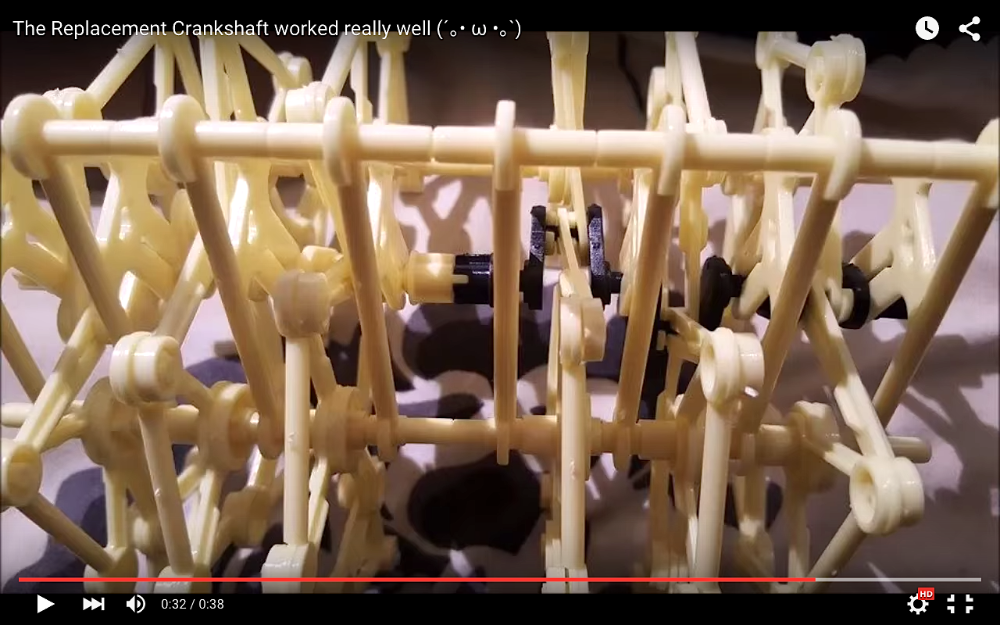
Last year I did a work placement with the engineering company Saint Gobain, where I had access to software and equipment we do not have at school. In particular I spent part of my time learning how to use CAD software to design, draw out and then 3D print many different objects including a replacement crankshaft for my Animaris.
I'm also an aspiring Polygot as I love learning foreign languages.
I’m currently taking Russian GCSE in-school and GCSE Mandarin Chinese and AS Japanese as weekly extracurricular subjects.
Last year for my DOFE Bronze award I assisted teaching beginners Mandarin Chinese to the year 10 enrichment sessions on Tuesdays and the sixth-form after-school club on Thursdays.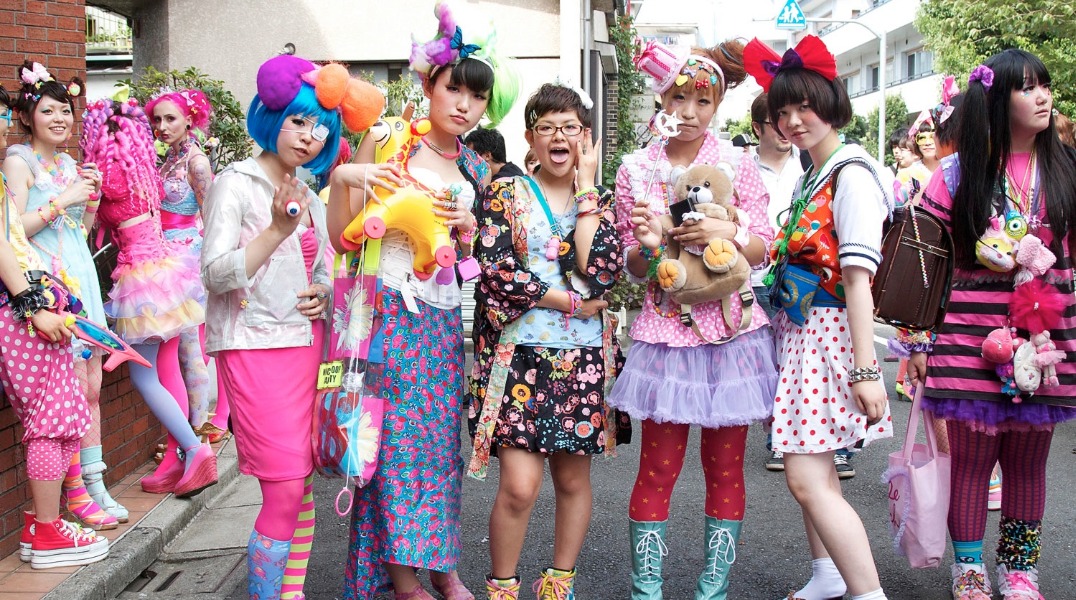
I have been studying Japanese for 3.5 years now, (mostly all by myself in my bedroom by using books and phone apps), as I’ve been totally fascinated by both Japanese language and culture for a long time.

Last year I received an A* in my GCSE Japanese and this summer I will be taking my Japanese AS exam.
Next year I plan to study Mathematics, Further Maths, Physics & Russian A levels in 6th form and then I hope to go on to study a Masters in Engineering at university.
I’m a current member of the 6th form robotics team and hope to lead our school’s robotics team in the 2017 National Students Robotics Competition.
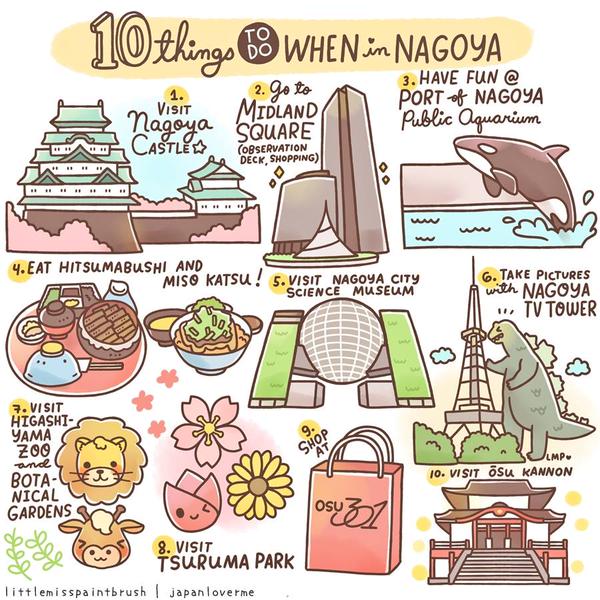
This full-on cultural immersion trip will be an amazing opportunity to see Japan and actually meet up and socialise with Japanese students the same age as me whom share my interests and I hope to initiate some long lasting international friendships.
It will also allow me to access real world applied science being done at research level, and enable me to start developing some of the skills that I will need towards my long-term aspiration which is to work within a team on exciting global engineering projects.
About the UK-Japan Young Scientist Workshop Programme
The UK-Japan Young Scientist Workshop Programme is a ground-breaking initiative which aims to bring together high achieving students from state schools located in disadvantaged communities in the UK, and students from schools serving communities afflicted by the Great East Japan Earthquake and Tsunami in Japan.
The program usually involves 40 – 50 students at each location and has been running since 2001.
Previous workshops have been hosted at Surrey and Cambridge Universities in England, and Tohoku and Kyoto Universities in Japan.
The trust’s international workshop program enables British and Japanese students over the age of 16 to discover, by living and working together, a new vision of the world they are entering, of the challenges and opportunities science and engineering are opening to them, and of their own futures as global citizens in that world.
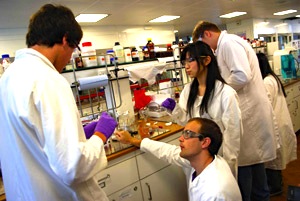
The selected students work in small teams with cutting edge scientists and engineers. They learn about the work going on in a particular research group and are given a related real-life challenge which requires them to think for themselves and work as a team exploring an issue through research and debate.

The projects run for the first three days of the week and are supervised by graduate students/post-docs. A volunteer Facilitator, fluent in both Japanese and English works with each project, ensuring close communication and partnership between the students from both countries and the scientists from the beginning.
At the end of the week, each team gives a public presentation to outline their achievements and answers questions in front of an audience which includes distinguished guests.
By living as well as working together, by sharing accommodation and through the social programme, the students enjoy, share and value each other’s culture, language, ways of thinking. This adds greatly to the excitement and value of the Workshop.
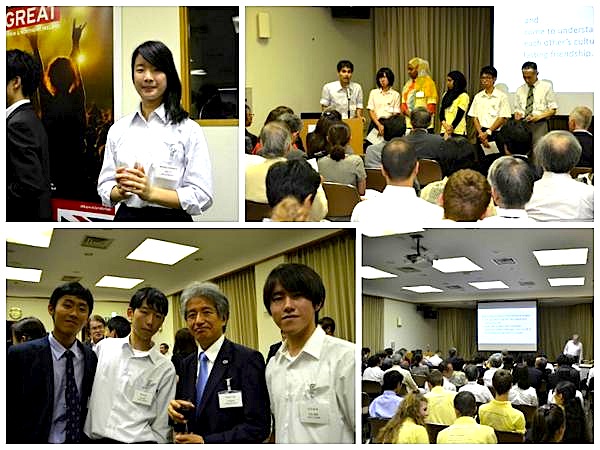
Japan and the UK have a long history of educational and scientific collaboration, dating back to about 400 years ago, when the British King, James I, sent a telescope to the country as a gift .
Ambassador to Japan Tim Hitchens CMG LVO says “We believe the programme to be an extremely worthwhile initiative to strengthen the cooperation and cultural understanding between our two countries and to spark young minds’ interest in science and engineering”.
In Japan, globalisation is being heralded as a means of improving the economy, and Katsuji Jibiki from the Mitsubishi Electric Corporation believes this programme has a part to play...
“Internationalisation means to understand the cultural differences between one country and other countries, and to respect those cultural differences.
So, this UK-Japan Young Scientist Workshop is the ideal programme to develop future leaders—not only in the science field but also in the global corporate field.”
As the governments of both the UK and Japan currently share serious concerns about the number of young people pursuing science-related careers, programmes such as the Young Scientist Workshop are particularly valuable.
The brainchild of the Clifton Scientific Trust, the programme aims to enliven young people’s experiences of science and its applications and thereby to boost participation, particularly among girls, in science, technology, engineering and maths at school and beyond.
To further these aims, in Summer 2016 the first All-Girl UK-Japan Young Scientist Workshop will take place at Nagoya University with an additional focus in supporting girls in science and girls leadership.
It is this pioneering All-Girl programme that I have been invited to attend.
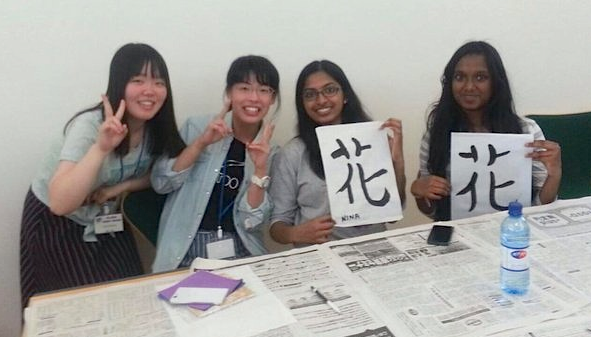
Why the specific need for the UK and Japan to collaborate on running the first All-Girl UK-Japan Young Scientist Workshop?
Both the UK and Japan share a real urgent need to provide specific support for girls in science and girls leadership as addressing the serious gender imbalance has been identified the most effective intervention that will help fill the current skills gap.
In spring 2015 I attended a talk by Dame Anne Dowling, the new President of the Royal Academy of Engineers, and she said that the UK is in great need of more engineers.
Apparently an additional 87,000 graduate-level engineers are needed each year between now and 2020, but our higher education system is producing only 46,000 engineering graduates annually, which suggests that the UK has a long way to go to fill this potential skills gap.
One dramatic way to address this looming skills shortage is to tackle the gender imbalance within the industry.
The UK has Lowest Number of Female Engineers in whole of Europe, women account for only 7 % of the professional engineering workforce in the UK, and less than 4 % of engineering technicians (IET 2013).
This underrepresentation of women is far greater than in other European countries. In Hungary @33%, Latvia @32%, Sweden 26%, Italy 20 % and Spain 18% of all engineers are women (Kumar et al 2014).
Japan is also making efforts to promote more women scientists and engineers because Japanese society needs to utilize all available resources and possibilities for its vital growth as it faces the so-called “Shoshi-ka” (low birth-rate).
Things are gradually improving but gender inequality is still an issue. In Japan in 2010, women made up 10.9% of the total university students studying engineering.
As more women in Japan are encouraged to study science and engineering it is vital that the political, societal and academic systems also change to support them so that hopefully they will work throughout their entire careers, unlike the previous generations.
This change is not so easy because Japanese society has had a long tradition that men and women serve different roles in the society; paternalistic notions about protecting women, combined with ancient Shinto beliefs that permeated Japan’s labour law’s until 2006 essentially banned women from carrying out many essential tasks necessary to a career in engineering and construction.
[See Reiko Abe – the changing face of Japan].
Furthermore the World Economic Forum’s Global Gender Gap Report 2011 ranks Japan 100 for gap in economic participation and opportunity and 101 for political empowerment out of 135 countries.
Japanese women in the labour force stats for 2010 showed that women earned just 60% of men’s wage for similar work and only 4% of women were CEOs. Shockingly just 1.1% of women were on boards (2012).
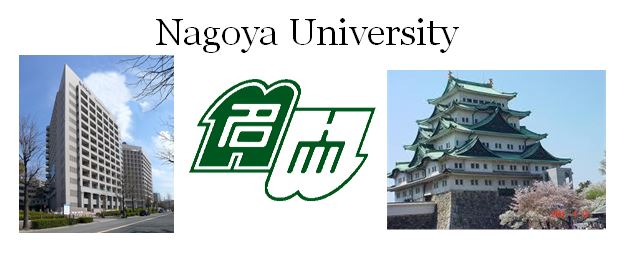
Nagoya University (Japan)
Nagoya University was established in 1871 and its ability in world-class research has been proved by the fact that 6 out of the 13 Japanese people being awarded with the Nobel Prize in the 21st century are faculty members. Nagoya University is actively engaged in promoting, internationalization, gender equality, and social contribution.
Approximately 14% (2,200) students are from overseas, and as many as 1,140 lecture courses are offered in English.
To address gender equality the University has increased the employment and support of female researchers, and offers nursery schools and an after-school childcare centre to assist faculty members with children, putting it ahead of other national universities in Japan.
Female faculty members actively participate in international exchange programs, and are highly valued by society.
Nagoya University is developing a wide range of partnership programs, with a view to creating a vital region for the future and promoting interaction with the world.
Website: http://en.nagoya-u.ac.jp/about_nu/index.html
Video: Nagoya University International Programs: Challenge - Experience - Future
The Clifton Scientific Trust Ltd (UK)
The Clifton Scientific Trust Ltd exists to promote excellence and relevance in science education, through pupil (student) participation in open-ended programmes of real scientific exploration and real world application; this is what the trust calls ’Science for Real’.
The trust builds working partnerships between science in schools (to engage young people of all ages and abilities) and the wider world of science with its many applications in engineering and technology in the community.
The Clifton Scientific Trust is a Member of STEMNET and of the Parliamentary and Scientific Committee
As a registered charity, it is only by receiving more funding that the Clifton Scientific Trust can continue its engagement work.
If you would like to find out more about the trust itself and how you can directly financially support the cutting edge work of the trust, please contact:
Dr Eric Albone, MBE, MA, Dphil, Executive Director of The Clifton Scientific Trust Ltd
UK Company No: 4167862
Registered UK Charity No: 1086933
Registered Office: 49 Northumberland Road, Bristol BS6 7BA. England
Website: http://www.clifton-scientific.org/index.html
Video: Cambridge 2012 UK-Japan Young Scientist